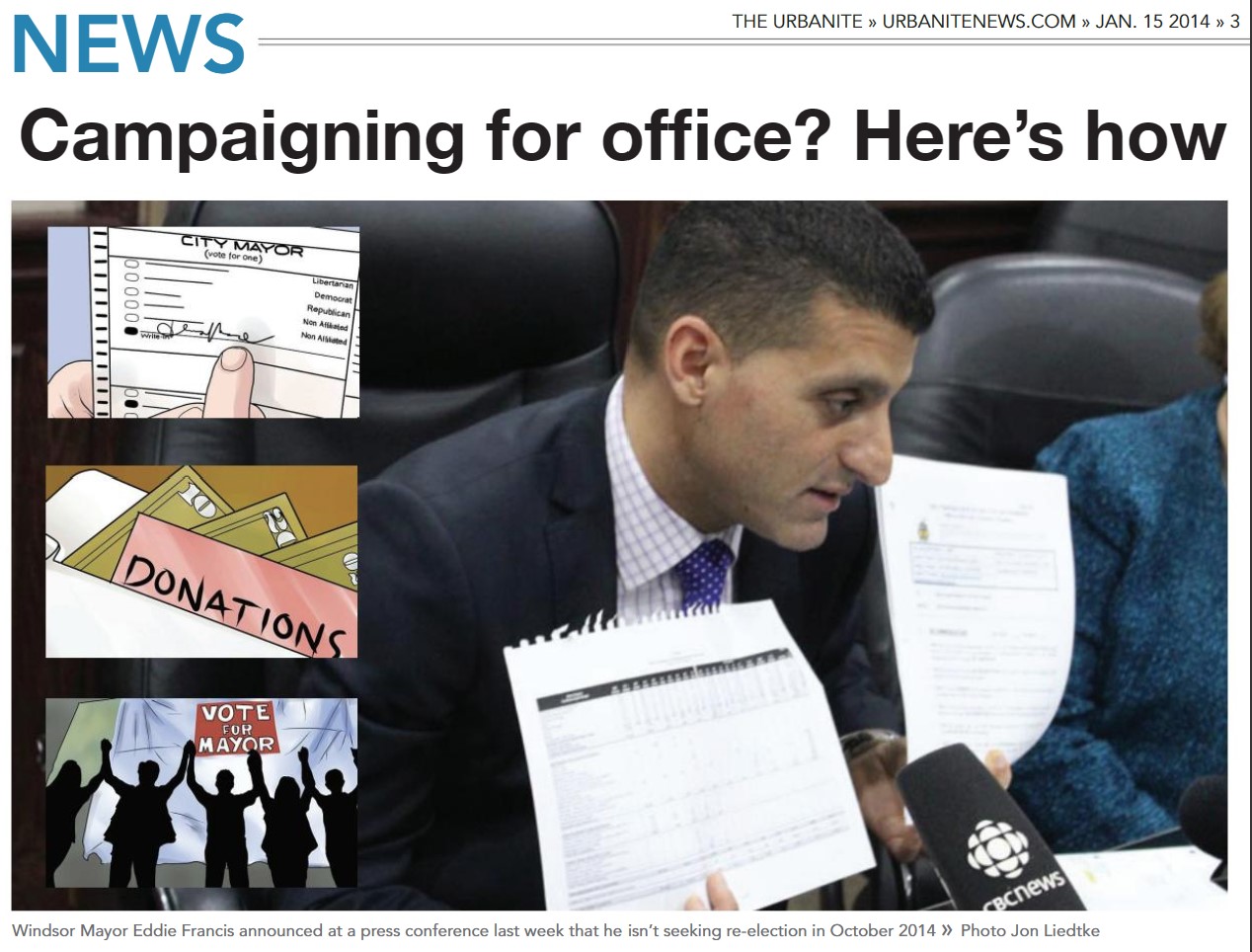The Urbanite – Jon Liedtke – Jan. 15, 2014
In the past year, Windsor has seen provincial and municipal elections and, if you’re suffering from electoral fatigue, there’s no end in sight.
The 2014 municipal election campaign was recently kicked off and a number of candidates declared their intention to run by formally filing their paperwork with the city clerk on day one.
Ernie The Baconman was the first candidate to formally file for the Office of the Mayor.
Overshadowing his declaration was the fact that Mayor Eddie Francis announced he would not be seeking re-election and would be recusing himself from political life for the time being.
The next election is scheduled for Oct. 27, and voters are eligible to vote for one city council candidate for the ward in which they reside, a mayoral candidate and a trustee for the school board for which they support declaration.
The fees run from $100 for city council or school board trustee candidates to $200. for mayor.
Paul Synnott has managed campaigns at all levels of politics municipal, provincial, and federal and has been part of the team for a leadership campaign. The Urbanite sat down with Synnott to speak with him about what it takes to execute a political campaign.
“Patience has got to be the biggest one,” said Synnott. “Municipal campaigns are different because they’re unique in Canada most federal and provincial campaigns are 30 to 35 days, there’s obviously lots of planning, lead-up and preparation.”
In contrast, municipal campaigns are like a “10- to 11-month marathon” in which you need to be “levelheaded, calm in your approach, methodical.”
According to Synnott, there are two things which are absolutely essential in any campaign and everything aspect of the campaign revolves around those two things: voter identification and getting out the vote.
“Everything else you do, your fundraising [and] events, is tied to one of those two things. The goal should be to raise money to help you identify voters, to raise money to help you get those voters out on election day, because those are the two things that get you elected,” he said.
There are advantages to announcing early in a campaign, but as a rule of thumb, Synnott would rule against it. “When you launch your campaign, you should be full bore ready to go, your team in place, your fundraising [planned], part of your funds in place. It’s not something you should do on an ad hoc basis… fail to plan, plan to fail.”
The best way to identify voters according to Synnott is “old fashion door knocking,” but he stated that phone calling, robocalls something which he advises against as “they suck” – employing petitions and telephone town halls are all other means to identify support.
With Mayor Francis declaring that he would not be seeking reelection, the Office of the Mayor is left without an incumbent.
“Incumbency is such a huge benefit for anybody running in an election unless you somehow upset people and then your incumbency may be a little bit of a liability,” said Chery Collier, a University of Windsor political science professor.
“Our council is only 10 members, 11 if you include the mayor, so there’s not a lot of opportunity to make your way in as a new person. But [an election] where the incumbent has left, for I guess you can say greener pastures, or at least different pastures anyway, this is a brand new opening for people to get their foot in the door on city council and to get their foot in the door in politics,” she said.
JON LIEDTKE
JAN 15, 2014
Page 3

Jonathon Liedtke is the managing editor of The Urbanite, Windsor’s alternative newspaper. He is also a member of Windsor’s “Punk with Horns” band The Nefidovs, and as such, is committed to enhancing and sustaining the arts community.



Leave a Reply